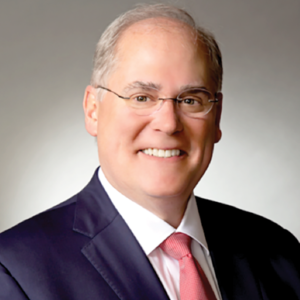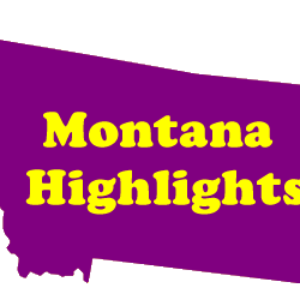Whitefish Westside Market, most recently a gas station and market in the west side of Whitefish, has undergone a major renovation of purpose and owner ship. The new owners, Bill and Sharon Kahle along with partner Joe Hess have added hundreds of new items and services.
Officials at Glacier National Park are proposing fee rate changes to most front country campgrounds in 2024. Front country campgrounds are accessible by car or RV. According to a release from park officials, the proposed rates for campsites would increase between $3 and $10, depending on the type of site. Some group sites could potentially increase up to $30. Public comments on the proposed fee increases will be accepted through Sept. 8.
The Kalispell City Council has considered a new downtown banner policy. Under the proposed policy, banners flying over the Parkline Trail and downtown streets should advertise events sponsored by the city or the associated business improvement districts and “highlight activities, general messaging or seasonal displays occurring in or around the city of Kalispell.
Bitterroot National Forest has approved the Gold Butterfly Project. The Gold Butterfly Project is a vegetation management and fuels reduction project in the Sapphire Mountains east of Corvallis. The Gold Butterfly Project is designed to, improve forest resilience to insects, and diseases; improve water quality and bull trout habitat; manage timber to provide forest products, jobs, and income to local communities.
Soma-Dis Deli, in Glascow, celebrates 25 years of business this year. Hope Jones-Farr, who was one of the original owners, alongside her husband Kevin Farr, sold the Deli in 2022 to Kyle Bilger. The deli opened on June 8, 1998.
The Big Sky Passenger Rail Authority has opened its 30 day public hearing for its $231,128 fiscal year 2023-24 preliminary budget. This budget is 48% below last year’s adopted FY23 budget.
As reported by the Daily Montanan the residential electricc customers of Montana-Dakota Utilities will be paying nearly $100 a year more in electric rates. The Montana Public Service Commission voted 3-2 to approve the rate increases. Commissioners Pinocci and O’Donnell in voted opposition.
The Montana Department of Transportation has closed the Interstate 15 Wolf Creek Interchange (Exit 226) southbound on-ramp from 6 a.m. to 8 p.m., weather and other factors permitting. To access I-15 southbound from Wolf Creek, take Recreation Road south to Exit 219. Construction began this spring to refurbish 7 miles of I-15 through Wolf Creek.
A century ago thousands of Ukranians migrated to North Dakota, as they are doing now. Arriving this month to work in the oilfields were 16 Ukranians who are part of a trade group’s pilot effort through the Uniting for Ukraine humanitarian program to recruit refugees and migrants during a workforce shortage. Twelve more Ukrainians are scheduled to arrive by Aug. 15 as part of the North Dakota Petroleum Council’s Bakken Global Recruitment of Oilfield Workers program. Some workers want to bring their families to North Dakota while others hope to return to Ukraine. Workforce issues in North Dakota have become “very acute” in the last 10 months. There are roughly 2,500 jobs available in an oil field producing about 1.1 million barrels per day.
The American Civil Liberties Union (ACLU) of Montana announced that Akilah Maya Deernose, J.D. will lead the organization as its next Executive Director.
The Rocky Boy Health Center (RBHC) broke ground on their new Youth Wellness Center on August 3. The project has been named the My Pimtisiwinkamik Youth Center, or My for short. The preliminary program for the My includes a 25,000sf to 30,000sf building with offices, exam rooms, multi-purpose classrooms, commercial kitchen and cafeteria, gymnasium sized for two basketball courts without bleachers, fitness instruction room, open gathering/ flex space, and much more.
The National Center for Appropriate Technology’s (NCAT) Board of Directors announced it has selected Fred Bahnson to lead the organization. NCAT was created in the 1970s in response to concerns about a possible energy crisis and an effort to build more sustainable energy sources. With staff in 12 states, NCAT is headquartered in Butte. Bahnson is the founding director of two environmental non-profits. In 2005 he co-founded and directed a congregation-supported agriculture project in North Carolina, and in 2012 he founded the Food, Health, and Ecological Well-Being Program at Wake Forest University School of Divinity.
DiamondRock Hospitality Company has purchased Chico Hot Springs Resort in the Paradise Valley for $33 million. Chico, a historic landmark and popular get-away for Montanans, is a 117-room resort on a 748 acres ranch at the base of Emigrant Peak, near the northern entrance of Yellowstone National Park. DiamondRock is a Maryland-based hospitality company that owns 35 hotels and resorts in 13 states and the District of Columbia. Chico Hot Springs Resort was founded in 1900 run by William and Percie Knowles as the Chico Warm Springs Hotel.
Governor Greg Gianforte appointed Sarah Swanson to head the Montana Department of Labor and Industry (DLI). Swanson has served as the Director of Strategic Engagement for DLI. Swanson served as an owner and General Manager for Farm Equipment Sales, Inc., a four-store John Deere dealer organization headquartered in northeast Montana.
Williston State College in North Dakota has announced plans to build a state-of-the-art healthcare training facility. Health care professionals will be needed with the news that Sanford Health is planning to bring a clinic and hospital to Williston. It was noted that there is a workforce shortage in the healthcare industry throughout northwest North Dakota and northeast Montana.
The North Dakota Industrial Commission approved $6.3 million in Outdoor Heritage Fund and Renewable Energy Program matching grants. Both programs are funded solely by oil and gas production tax revenue. The Outdoor Heritage Fund was established in 2013 to provide grants for projects that enhance outdoor conservation practices in the state. The Renewable Energy Program was established in 2007 to promote research and utilization of North Dakota’s renewable energy resources, including advanced biofuels.



